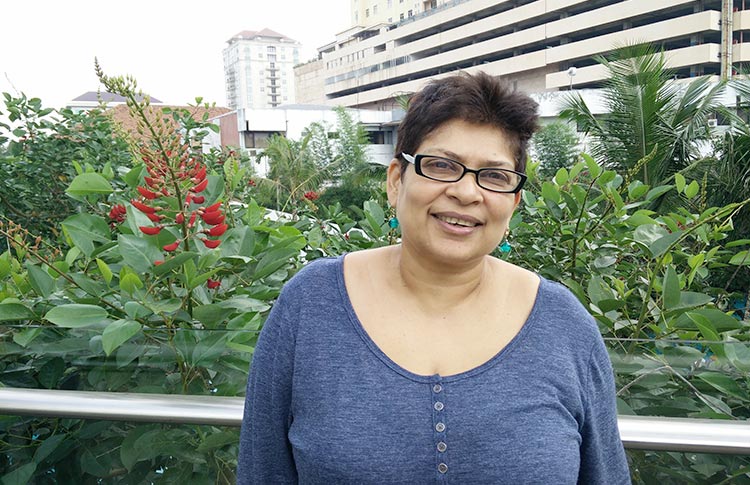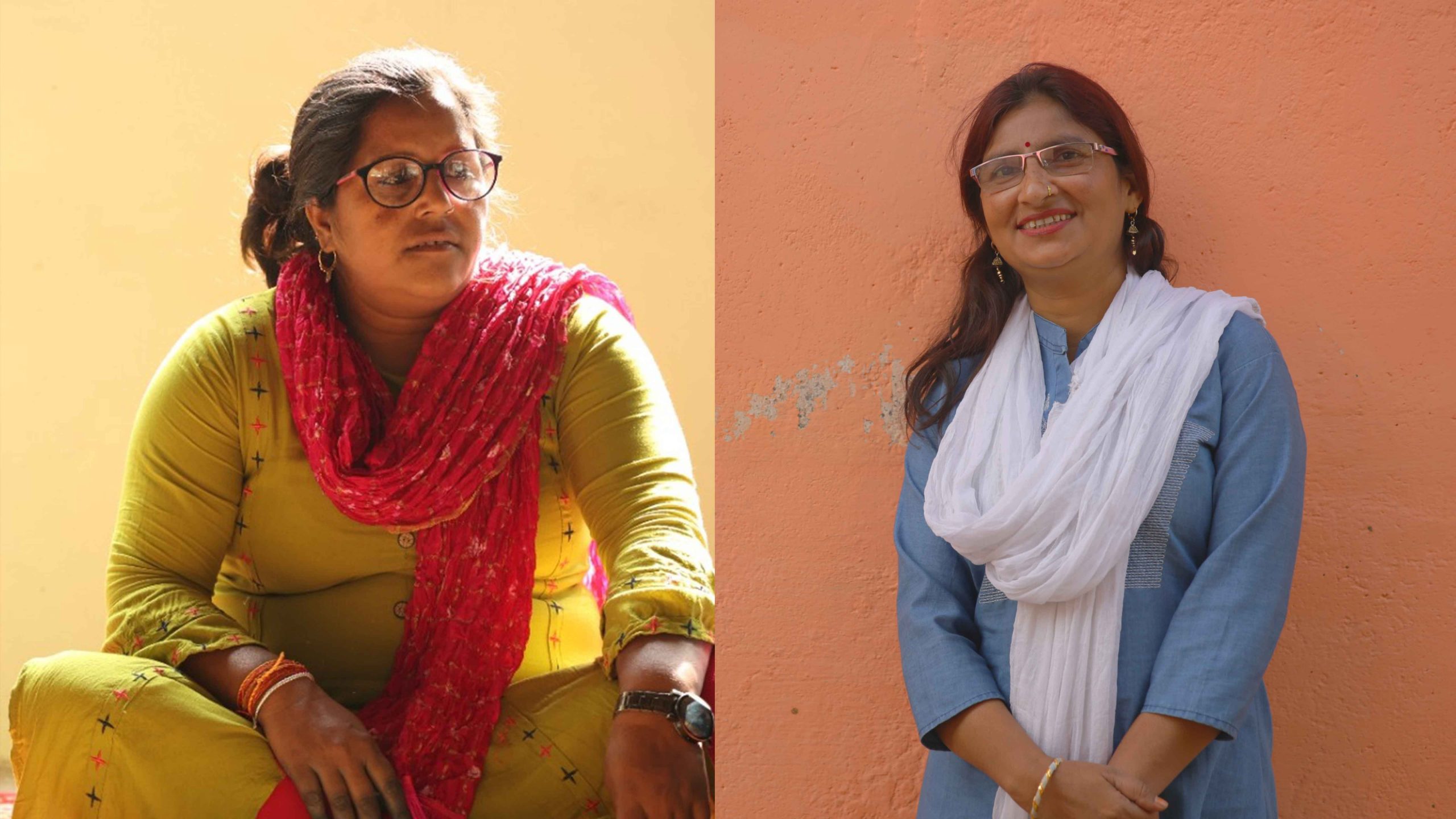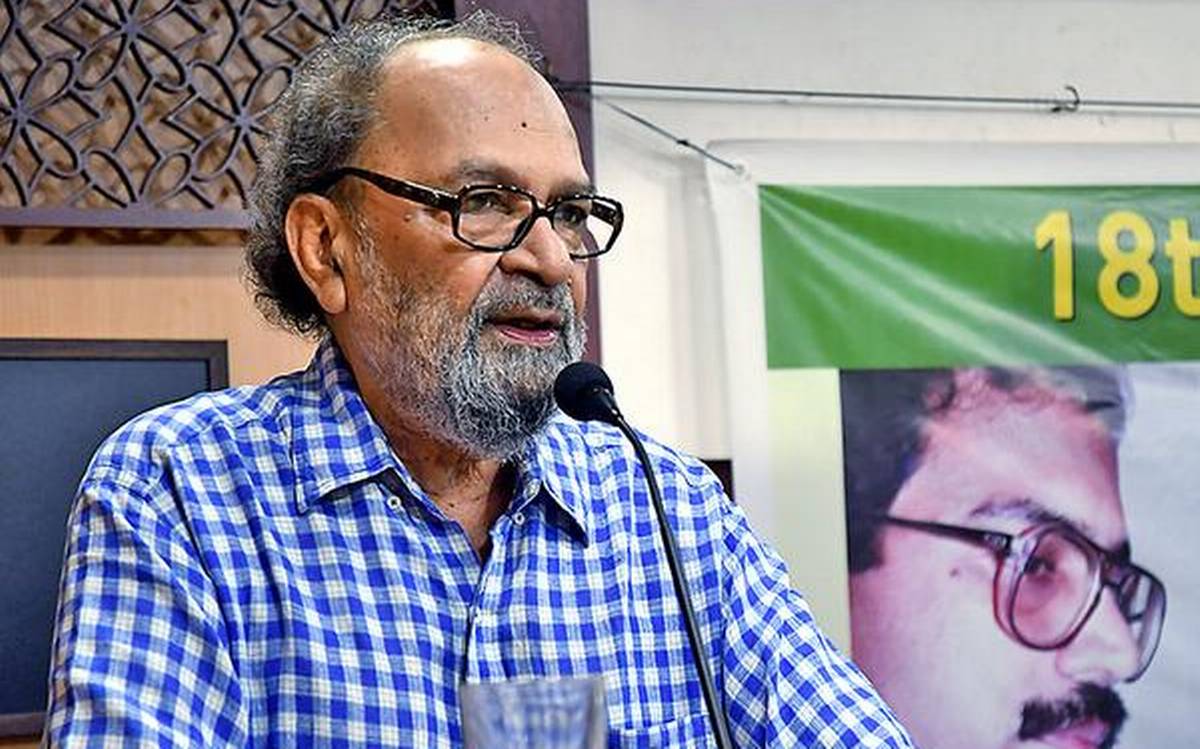Activist Bishakha Datta On Her Workshop That Teaches People With Disability About Sexuality & Desire
- IWB Post
- June 18, 2019

‘Who Will Make the Chapatis?’ is a question activist Bishakha Datta often asks before kick-starting gender-based discussions. So much so that she’s even published a book with this name many years ago!
You are likely to know Datta as the phenomenal feminist wearing the many hats of a filmmaker, activist, and journalist to safeguard Indian women and their fundamental rights. In the past, she has launched a handful of powerful NGOs and social projects in the area of gender, sexuality and human rights to create positive ripple effects in society. Today, through this tête-à-tête, I will try to understand her perspectives on a female-led world.
Excerpts below:
Before I delve into the various social projects you look after, I’d like to learn a little about your background, like the kind of parenting you received that shaped you as a feminist.
I was the only child in my home and hence, was never raised with any set gendered-mindset. For example, I was never told that anything was off-bounds for me. I played with the boys of my locality, invited them over to my birthday parties, played all kinds of sports and wore all sorts of clothes. I don’t think my parents ever realized if they were raising a feminist.
Growing up, you witnessed gender-inequality that typically prevails in the Indian society. Since you weren’t used to that, how did you tackle it?
During my college days, I had girlfriends who would say things like: ‘I am sorry, I can’t go out late at night, my parents don’t like it,’ and ‘I am not allowed to wear anything but salwar-kameez.’ Because these sentences were new to me, it was then that I felt the very existence of inequality and patriarchy around me.
Did you ever encourage your friends to be feminists?
I would often hold conversations with those around me on how to make feminism a daily practice. I would tell the elderly why they should give freedom to their daughters and let them explore the many possibilities in their life. And then I would discuss with my friends how restricting a woman can result in her deformed lifestyle.
Most importantly, I emphasized on helping women in distress around me. In most of these cases, they only needed a little guidance and some courage to take that first step and stand up for themselves.
Do you think the fierce Indian youth is taking the movement of feminism in the right direction? If not, what are the loopholes?
Young feminists impress me with their energies. They don’t protest to request anymore. They demand. They are direct and blunt on the roads and on social media. However, I feel that the tone has become a little dismissive. All they need to understand is that the problems women and LGBTQ faced years ago are still the same and it is simply the tactics that need to be different now. I am sure this generation has it in it to utilize its strength in a righteous manner.
You once mentioned that fighting for the rights of sex-workers doesn’t really go well with anti-trafficking feminists. Please elaborate.
I work closely with NGOs that fight for the rights of female prostitutes. I handle cases in which the sex workers demand their rights to fairer payment modes, protection from sexual violence, etc. On the other hand, there are activists who don’t want these women to be sex-workers at all. They protest against human trafficking that is highly responsible for forcing women into selling their bodies. I support their intention but I know hundreds of women who, as adults, have deliberately chosen this path to battle an extreme living condition like poverty. In such a case, you can’t ask them to change their occupation of many years all of a sudden. For this reason, I prefer making their chosen life a little better.
What kinds of stories did you carry in the newsletter ‘Veshyas, Vamps, Whores, Women?’
The newsletter narrated real-life stories of sex-workers who felt financially exploited at their workplace (brothel) or sexually harassed by a client. I used to co-write it years ago but not anymore.
How helpful are the police when it comes to supporting sex-workers?
Prostitution is not illegal in India but for most of them, again, this is trafficking which is criminal. Carrying condoms in the bag, waiting by the roadside for the clients, the police find it all immoral, against the social norms, and a bad code of conduct. One can get arrested for a night or two if caught committing these ‘crimes.’ To add to their misery, when these women try to lodge a complaint against their abusive pimp or client, they aren’t taken seriously in police stations.
Talk about the workshops your NGO Point Of View conducts to discuss gender and sexuality.
We conduct three kinds of workshops. The first type – ‘Sexuality & Disability’ – is carried out with disabled people to teach them about their bodies and sexuality. In India, we assume that these individuals have no desires and don’t need bodily pleasures. How unfortunate that we think they don’t need sex education. With the ‘Sexuality & Disability’ workshop, we first teach them about the human body and its reproductive system. For the blind, we ask them to touch the models of reproductive-organs and get an impression of the female/male body. Next, we continue to the sex-education part where they are taught how to reclaim their sexual powers. From safe sex, speed dating to role plays and how to wear a condom, we talk quite openly. So far, we’ve conducted these workshops across nine states in six languages.
Last month, Point of View invited people in Mumbai to watch ‘Skin Stories: Love. Desire. Disability.’ This consisted of the first-person narratives of disabled women exploring their desires and sexuality. I believe that these stories help bust myths around the intimate lives of people with disabilities.
@saysnidhigoyal asks “Where do you find partner?” Answers: Garden, Mall, college, Railway station, Facebook, whatsapp.#SexDis
CC @busydot— Sexuality&Disability (@dis_sexuality) October 18, 2015
Boys in groups talking that they are not able to do sex because their partner doesn’t agree during #SexDis workshop pic.twitter.com/NztnkNEKSB — Sexuality&Disability (@dis_sexuality) October 18, 2015
Erection period.
Successfully protected bananas.#sexdis pic.twitter.com/y0DwOTXyNe— Sexuality&Disability (@dis_sexuality) June 3, 2017
I am sure. What are the other two workshops you’re talking about?
The second workshop focuses on gender talks where we indulge parents, typically from rural India, in expert conversations. We address issues like usage of mobile phone which an adult, unmarried girl has no access to, unlike her brother. You may be aware of the many Khap Panchayats around the country that have strictly asked their girls to use the phone of their father or brother so he can keep an eye on the call log and message box.
The third workshop is about digital storytelling where we screen films featuring real stories of young women who’ve wrecked social taboos and empowered themselves.
Coming to my favourite part of your story – the book ‘And Who Will Make The Chapattis.’ It was published in 1998 when the concept of feminism was rather new to the Indian circuit. How well was it received?
The book was about those Indian women who were running the rural government in Maharashtra. A joint effort of Meenakshi Shedde, Sonali Sathaye, and Sharmila Joshi, its first edition was published in 1998. The second edition was printed in 2001 after the first part received a massive response. The publication consisted of individual interviews with women who were the members of 12 panchayats in 9 villages. It spoke about the kind of impact those women had in politics and the difference this made in local governance and their life.
(You can buy the book here)
How talented, according to you, were these women in politics?
Talking about the villages like Mauje Rui, Bitar Gaon and Brahmanghar in Maharashtra, the thinking process of women was way too different from their male counterparts. For example, they preferred using govt. funds for building the quality schools and toilets to promote girl education, health, etc. Unlike men who’d spend it on constructing roads.
It’s been noticed that in such cases it is the husband who holds the actual power when the wife is a part of the village Panchayat. Did you smell this unlawful pattern in the families you interviewed?
You’re right. The scheme of making your wife stand for the gram elections while, in reality, you’re the one who’s going to act/speak/decide politically is an old practice in our patriarchal society. Sadly, it still prevails.
Lastly, would you mind sharing the stories/scripts you’re currently working on?
I’m writing a book based on the lives of sex-workers living in the famous red-light area of Kolkata. I will take another year and a half to compile all of it and publish it.
[Pictures are her own]
This article was first published on April 18, 2018.
- 0
- 0













